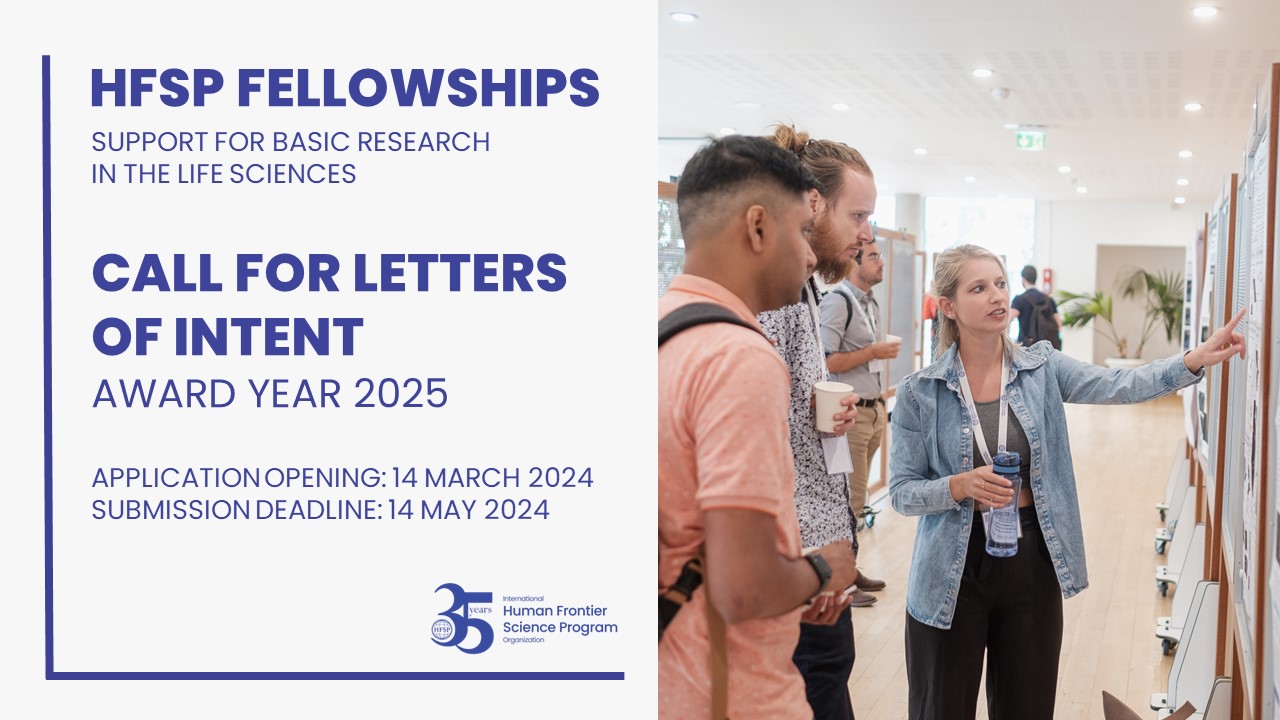
Interested applicants must establish an account through the ProposalCentral web portal. Prospective applicants are urged to carefully review the guidelines.
“HFSP is different than other funding opportunities,” said Barbara Pauly, HFSP Director of Fellowships. “We offer postdoctoral researchers the chance to expand their horizons and become pioneers of new fields of inquiry.”
Since 1990, more than 8,500 researchers from more than 70 countries have been supported, and of these, 29 awardees have gone on to win Nobel Prizes.
Applicants are expected to explore new paths of research that open new areas of knowledge, emphasizing the involvement of scientists from diverse fields like chemistry, engineering, physics, mathematics, or nanoscience in life science projects. Successful applications will embrace risk, forge innovative research directions distinct from the applicants' current endeavors, and involve internationally collaborative teams of researchers. HFSP Fellowships span three years and are granted to early career scientists to broaden their research skills by exploring new areas of study, while working in a laboratory in a new country. HFSP supports two categories of fellowships: Long-Term Fellowships and Cross-Disciplinary Fellowships.
· Long-Term Fellowships are for applicants with a PhD on a biological topic who want to embark on a novel and frontier project focusing on the life sciences.
· Cross-Disciplinary Fellowships are for applicants who hold a doctoral degree from a non-biological discipline (e.g., physics, chemistry, mathematics, engineering, or computer science) and who would like to conduct research in the life sciences.
In both cases, the total funding amount will be about $200,000, depending on the host country. The applicant must propose to work in a laboratory that is different from the country where the doctoral degree was conferred, or first postdoctoral training was performed. For more information, visit www.hfps.org.


































